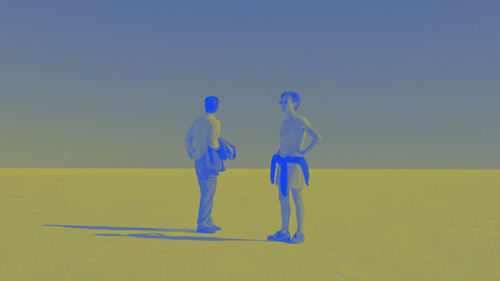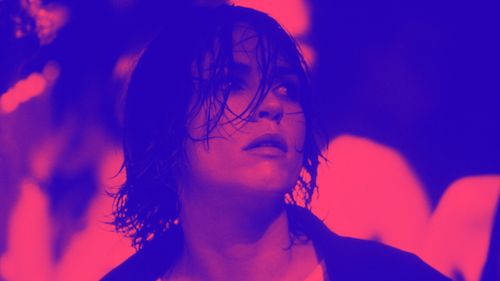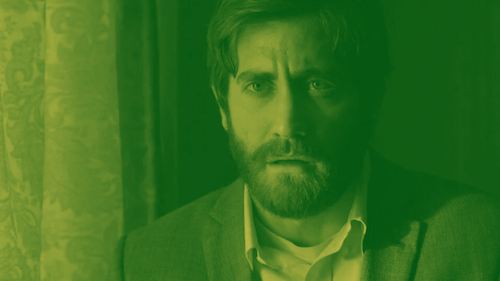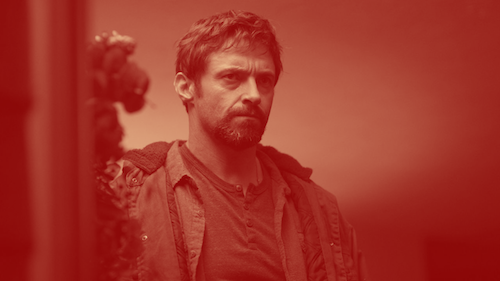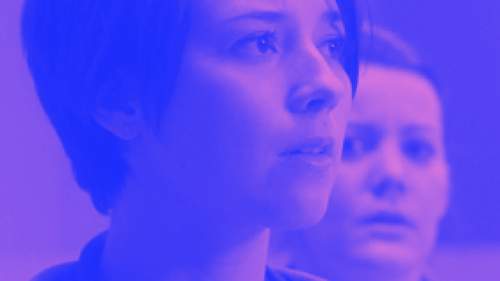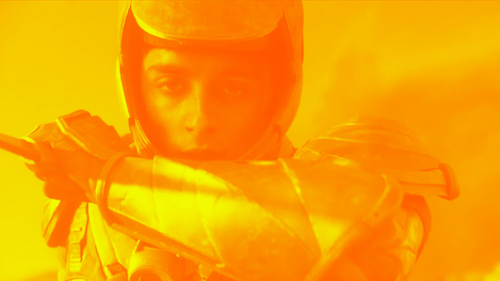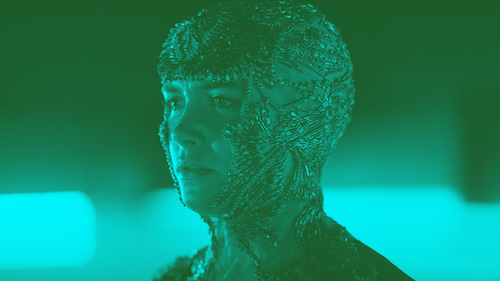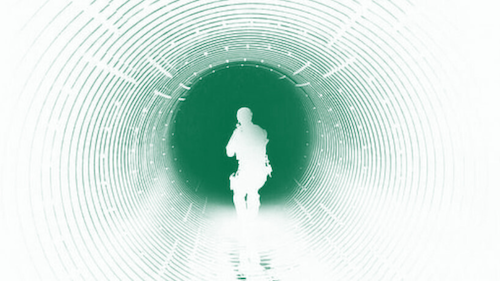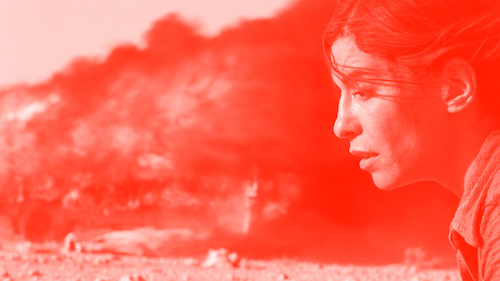Filmography Worship: Ranking Every Denis Villeneuve Film
Written by Andreas Babiolakis
Filmography Worship is a series where we review every single feature of filmmakers who have made our Wall of Directors (and other greats)
When most people think about Canadian cinema, they grimace at the weird outputs of our nation, consider the small indie films that never quite break out of our borders, or the co-productions (either these options or all of the Hollywood films shot up here and disguised as purely American). One of the very few directors to explore both purely Canada’s film scene and break out of it (without ever completely shedding off his national cinematic identity) is Quebec’s Denis Villeneuve. Of course, his name is borderline untouchable now as he has become something of a second coming of Christopher Nolan (an arthouse student with a knack for capturing the mainstream, blockbuster crowds), but to only acknowledge the mainstream films he made is to misunderstand why Villeneuve is as great as he is; it isn’t about the action sequences or the large scaled productions, but his ability to capture dread and frustration so acutely.
Villeneuve has showcased brilliance in the genres of science fiction, crime dramas, and hypertragedies. Most of his films brood via pure cynicism and rawness, but he occasionally will have a film with beauty and heart. Overall, Villeneuve has always strived to be different, even in the way that he goes about making large epics (they never feel magical despite their scope; they instead embody anxiety and/or claustrophobia). In short, Villeneuve has been able to both entertain and subvert the notion of the cinematic spectacle, understanding how it functions and aiming to go against how most directors go about encompassing it. The end results feel singular to the Villeneuve experience, as he has become one of the biggest names in the industry today. He’s far from done with his career, but we’re going to celebrate his legacy nonetheless. Here are the films of Denis Villeneuve ranked from worst to best.
11. August 32nd on Earth
It all started within Canada’s weird strand of filmmaking, and a few things were clear. Firstly, that Villeneuve had something. Right away, after a couple of short films, his feature film debut was a part of the Un Certain Regard section of the 1998 Cannes Film Festival, and the film was even selected to represent Canada for Best Foreign Language Film at the Academy Awards (it wasn’t nominated). He was a success overnight, in a sense. At the same time, he had no idea how to pull together all of the ideas in his head quite just yet because August 32nd on Earth is easily his weakest film. While strange for the sake of being strange (two friends decide to conceive a baby in a desert so they have something to live for), there isn’t much in terms of important commentary or an extra side to the bizarre that Villeneuve would so effortlessly display in future films. I’d only recommend this for Villeneuve obsessives, but even then, this barely feels like his signature style, so watch at your own risk; it’s quite bland.
10. Maelström
Like August 32nd on Earth, a lot has changed since his sophomore film, Maelström was released. This film effectively put Villeneuve on the map so much so that he was set up to only make stronger films from this point onward thanks to better budgets and means, and it cleaned up at the 2001 Genie Awards like it was some sort of perennial Canadian film. In hindsight, it, too, feels incomplete and like a series of ideas that don’t really amount to much (although there is more value here, both artistically and narratively than August 32nd on Earth. If you want to see David Cronenbergian romance, surreal cynicism, and a dying fish’s narration as an effort to make sense of this insane thing called life (take from that what you will), then Maelström may be your next must-see. Otherwise, I can see the appeal from yesteryear, but both Canadian cinema and Villeneuve have released far stronger and complete works since.
9. Enemy
The last film of Villeneuve’s that feels like it is missing something is Enemy: his answer to the works of Franz Kafka. As we follow two men who are identical in almost every way (outside of the trajectories of their lives) in a nightmarish world where spider beings can pop up at any moment, we get a lot of questions and very few answers. While I usually am on board for the mysterious and am okay with ambiguity (I am one of the biggest fans of David Lynch, for instance), Enemy feels just a bit too thin to the point that I kind of don’t care about the unknown here. To me, this is a film that is meant to envelop you within its inner demons and cryptic nature, but I feel like an outsider looking in the entire time, completely unfazed by the inner workings of this perverse reality. For a film that’s meant to exhibit paranoia, I don’t feel connected enough. However, I do welcome risks, and considering this was meant to be Villeneuve’s English-language debut (alongside Prisoners released the same year), I appreciate how uncompromised Enemy feels; this doesn’t feel finished, but at least it isn’t safe or watered-down, either.
8. Prisoners
This one is sure to get me some flack. While I think Prisoners is strong for the most part, I also find it overlong and as though it meanders more than it ever needs to (even culling a half hour of runtime would result in a film as punishing and more effective, I feel). What saves Prisoners is the multifaceted take on the human psyche and what the definition of being a prisoner means, whether this entails criminals who are incarcerated (or let free to roam the streets), those who are kidnapped, or those trapped within their own minds. Like I said for Enemy, I love how relentless Prisoners feels for what is pretty much Villeneuve’s foray into mainstream cinema, as if he took a note from the guidebook of David Fincher on how to make a crime film relatable yet gritty and anything but conventional. Still, I find that the film drags in its third act which is the one major flaw that keeps me from loving Prisoners like so many younger cinephiles do. It’s much more complete than the previous three films mentioned, but maybe too much so to the point of getting in its own way with its excess.
7. Polytechnique
The first Villeneuve film I’d call fully great is another Canadian film of his that cleaned up at the Genie Awards: the shocking drama Polytechnique (based on the unfortunately real 1989 École Polytechnique school shootings). Hardly the first director to tackle the tricky subject matter (see Gus Van Sant’s Elephant, for instance), Villeneuve’s take on the horrors of school-based slaughter is as harrowing as you’d imagine it to be. What I will say is that the stripped-down nature of the film makes me feel like I’m there witnessing the atrocity firsthand, as we are cooped up in the confinements of a lockdown for over an hour (Polytechnique devotes most of its duration to the massacre itself). While clearly a triggering film for many and not the easiest motion picture to watch for anyone else, Polytechnique is an early exercise in how Villeneuve handles tragedy, crime, moral grey areas, and tension. It’s a must for the biggest Villeneuve fans, but I still feel like it is most likely overlooked. Please don’t let it be.
6. Dune
The first of the three Dune films is two things at once. Firstly it is a spellbinding portfolio of technical masterworks that makes for some of the most captivating cinema in science fiction. Secondly — and here’s the “but” of the situation — it is clearly a prologue for what is to come. As epic as it may be, Dune is still only a part of a whole, but what a stunning part it is. As we get what is effectively the Old Testament of Frank Herbert’s biblical classic, the patient world-building is so rich and thorough (which is exactly what was needed). It’s tough to separate this film from the others and judge it on its very own, but Dune is hypnotizing at the very least (regardless of whether you think it is individualistic enough to stand on its own or not).
5. Dune: Part Two
Dune: Part Two is almost exactly the same as its predecessor in tone, scale, and nature. It, too, feels like it is a part of a nine-hour-long experience, rather than the second film of a trilogy of individual films. At least Dune: Part Two proceeds the story enough that we get the necessary turning points to keep things interesting, like the overwhelming sensation of corruption once one is handed too much power, and the complexities of morality in a world that will never be black-or-white (seeing this latter quality makes me pleased, because Villeneuve handles the fickleness of not knowing what is right or wrong so well in his films). One still needs to reach the end of this Dune trilogy in order to see if the trip was worth it in the end, but Dune: Part Two is quite the bridge to get us there.
4. Sicario
I didn’t quite like Sicario as much as I should have the first time I saw it. It felt overly cold and self-invested in its own hostilities. In hindsight, Sicario has aged quite well within a world that is so monstrously divided, as if it was a harbinger of things to come. It’s a rare crime film that has next to zero hope whatsoever, as if the entire thing feels either futile or like a suicide mission from the very beginning. It’s all about descending this downward spiral and seeing just how deep the well of despair and distress goes. It feels like we don’t even get halfway down, but that slight mystery of what we don’t know (compared to the shocking sequences we do get) is what keeps Sicario so fascinating. We don’t see all of the worst of humanity, as if we’re spared by being shown just a taste of what makes us an awful species. It’s an uncompromised film that has been mimicked ever since (even via a pale sequel that didn’t need to exist), so it’s safe to say that its impact is an instant one.
3. Blade Runner 2049
Making a sequel to Ridley Scott’s Blade Runner felt like such a stupid gamble to make, but something made Villeneuve feel like he could take this seemingly impossible task on. As a result, it’s easy to declare Blade Runner 2049 one of the most successful and necessary sequels of all time. It matches the darkness of the previous film while feeling entirely of its own style (far more empty and barren as opposed to cluttered). It picks up on the themes of existentialism while including Villeneuve’s signature style of pummelling drama. The best part? It’s a respectful sequel: one that never sullies the ambiguity surrounding Rick Deckard’s potential identity as a replicant (an opportunity some hotshot director would have pounced upon to sell their film, but Villeneuve never falls for such bait). While I won’t pretend that 2049 is better than the original Blade Runner, it’s a damn close second and a rare unintended sequel that works so well that it must always be considered.
2. Arrival
Easily Villeneuve’s most beautiful film, if he ever went full-on Nolan, it would be for Arrival. A take on the barriers between humans and the unknown, beings divided by language, and an individual and the people who surround her, Arrival is a series of realizations and breakthroughs that also challenge your mind as you stare with your mouth agape. It must be seen more than once to fully understand its time-travel depiction of love, loss, and forgiveness. Besides, there’s actual hope in a Villeneuve film, which feels like such an anomaly compared to the majority of his other works. I’d like to see Villeneuve tackle such a film again in the future because he can clearly make exquisite, breathtaking films when he decides to. As a result, Arrival is easily one of my favourite films of his because of its lasting impact and how it’ll never get tiresome no matter how many times I see it. People like to call Villeneuve a master of science fiction, and Arrival is the best he’s ever been in the genre.
1. Incendies
I was travelling and in a hotel back in 2012, so the television I was watching while bored out of my mind didn’t have a guide when I flipped through channels. I recall stumbling upon a shot of a devastated woman on the ground as a bus was lit ablaze in the background. Instantly, I was transfixed: what on Earth was this film? I watched for a little bit longer and had a Radiohead song (“Like Spinning Plates”, one of my favourites of theirs) to reference. I stopped watching at this point as to not spoil the film further for myself. I did some digging and discovered Incendies. I was worried that I was at the end of the film. When I got home after my trip, I instantly bought the first copy I found at HMV when it still existed. I was shocked to find that this scene isn’t even halfway through.
Thus began one of the most intense cinematic viewings I’ve ever had. Incendies was a film that floored me, had me in tears, and left me not wanting to budge for hours after I watched it. Not many films are as powerful as this one, and I cannot stress this enough when I say it is easily one of the greatest Canadian films of all time (some days, I will say it is the greatest Canadian film). Like some of his other films, it cleaned up at the Genie Awards, but I wish it earned that elusive Best Foreign Language Film Oscar that it so rightfully deserved. I’ll never forget the instant grip this film had me in even though I tripped upon it while channel surfing, I can’t shake off any time I have seen the film in full, and I’ll never forget the lasting impact this film has had on me as a cinephile. Incendies is Denis Villeneuve’s masterpiece, and if you haven’t seen it yet (should you be more familiar with his Hollywood works), I implore you to drop what you’re doing and watch this unparalleled take on family trauma, heritage, and political divide. You won’t regret it, but you’ll never forget it and its haunting nature, either.
Andreas Babiolakis has a Masters degree in Film and Photography Preservation and Collections Management from Ryerson University, as well as a Bachelors degree in Cinema Studies from York University. His favourite times of year are the Criterion Collection flash sales and the annual Toronto International Film Festival.


